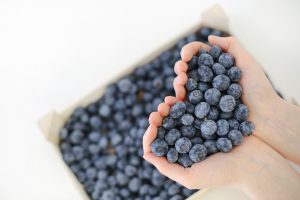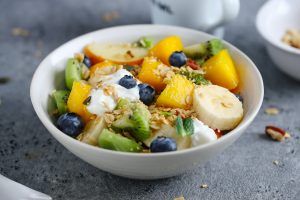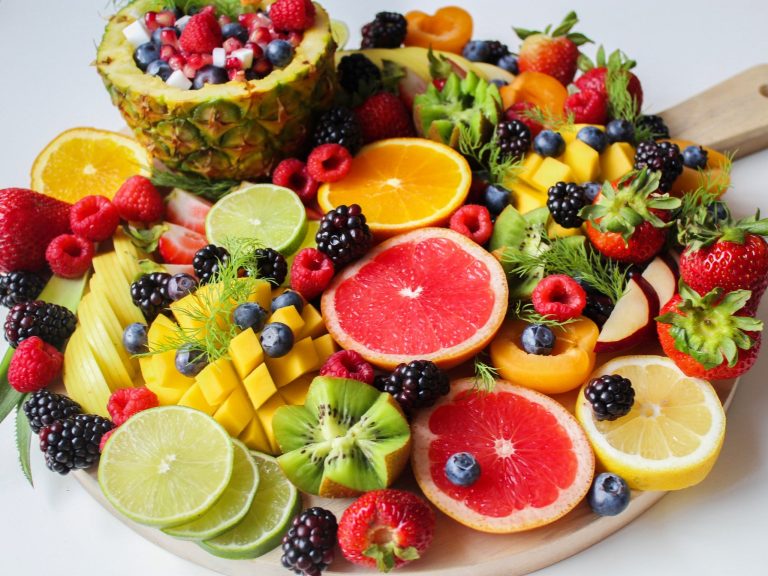Fruits for dogs are an excellent source of fiber, vitamins and antioxidants. They can provide health benefits such as supporting the immune system, maintaining healthy skin and coat, improving digestion and providing energy. However, fruits should be introduced gradually into the dog’s diet and in moderate amounts to avoid possible digestive problems.
Dogs, like humans, can benefit from certain fruits in their diet, providing them with a variety of essential nutrients and vitamins. However, not all fruits are safe for dogs and some can be harmful. It is important to understand which fruits are suitable and to what extent they can be included in the canine diet.
CONTENT:
- Fruits for dogs, the good ones
- The benefits of fruit in dog nutrition
- Fruits for dogs, the bad ones
- Simple recipes with fruits
Fruits for dogs, the good ones
There are some fruits that are considered beneficial for dogs and can be included in their diet in moderate amounts. These include apples (seedless), bananas, blackberries and raspberries, apricots and peaches (seedless), melon (seedless), and blueberries. These fruits provide nutrients, vitamins and antioxidants, helping to maintain a healthy and balanced diet for dogs.
About fruits suitable for dogs, it is important to emphasize not only their variety, but also the individual benefits and precautions associated with each type. Here’s a more detailed look at some safe and recommended fruits for dogs:
-
Apple
This is an excellent fruit for dogs, rich in fiber and essential vitamins. However, it is essential that it is offered without seeds or skin. Apple seeds contain cyanide, which can be toxic to dogs, so removing them is crucial before giving the apple to your dog.
-
Bananas
These fruits are an excellent source of potassium and fiber. However, due to their high sugar content, they should be given to dogs in moderate amounts. They are a healthy option as an occasional snack for dogs.
-
Blackberries and Raspberries
These fruits are known for their high content of antioxidants and vitamins. However, they should be given to dogs without tails and carefully to avoid the risk of suffocation. Moderation in quantity is essential to avoid possible digestive complications.
-
Apricots and peaches
These fruits can be fed to dogs without the pits. The seeds of these fruits contain cyanide and can be dangerous for your pets. Be sure to carefully remove the pits before giving them to your dog.
-
Melon or watermelon (without seeds)
Provides a good source of vitamin A and C. However, it is important to offer it in moderation, as large amounts can lead to diarrhea. Removing the seeds is essential as they could pose a choking or digestive blockage risk.
-
Blueberries
These fruits are rich in antioxidants, but because of their high acidity content, they should be offered carefully. Too many blueberries can irritate a dog’s stomach and lead to gastric discomfort. Give them in moderate amounts to avoid these problems.

It is important to remember that any new introduction into the dog’s diet should be carried out carefully and in small quantities, in order to observe the individual reactions of the animal. Carefully monitor your dog’s health after consuming fruit to identify any adverse reactions and consult your veterinarian if concerned.
The benefits of fruit in dog nutrition
Fruits bring multiple benefits to dogs, providing them with a significant supply of nutrients and improving their overall health. Here’s how fruit can contribute to a balanced diet for your four-legged friend:
- Provides essential vitamins: Fruits contain essential vitamins, such as vitamin C and vitamin A, which are crucial for the health of dogs. These vitamins help maintain proper immune function and improve vision, skin and coat.
- Source of fiber: Fiber in fruits supports digestive health in dogs. They help maintain a healthy intestinal transit, prevent constipation and can reduce the risk of certain gastrointestinal conditions.
- Antioxidants for the immune system: Fruits are rich in antioxidants that protect cells from damage caused by free radicals. These antioxidants can help protect dogs’ immune systems and prevent chronic diseases.
- Supporting healthy skin and coat: Regular consumption of the fruit can help maintain healthy skin and a shiny coat. The nutrients in the fruit can help hydrate the skin and maintain the elasticity of the coat.
- Energy intake and maintenance of healthy body weight: Fruits provide a natural energy intake due to their carbohydrate content. Plus, they can be a healthy alternative to high-fat, high-calorie snacks. However, it is important to control portions to maintain a healthy body weight within the dog’s diet.
- Nutritional enrichment and dietary diversification: The moderate integration of fruit into dogs’ diets can complement and diversify their nutritional intake. This diversification can bring multiple benefits, ranging from strengthening the immune system to improving the overall health and vitality of the pet.

Fruits for dogs, the bad ones
There are a number of fruits that can be extremely harmful and even dangerous to dogs and should therefore be strictly avoided. Here are some examples:
- Grapes and Raisins: These fruits, although considered healthy for humans, are highly toxic to dogs. Their consumption can lead to kidney failure, manifested by symptoms such as vomiting, diarrhea, weakness and loss of appetite.
- Avocado: This fruit contains a compound called persin, which is toxic to dogs. Persin can cause a range of symptoms, including vomiting, diarrhea and difficulty breathing. It is important to avoid feeding dogs avocado or food containing this fruit.
- Pomegranate: Pomegranate seeds and peel contain chemicals that can be toxic to dogs. Ingesting these parts of the fruit can cause digestive problems, vomiting and diarrhea, and in severe cases, they can cause intestinal blockages.
- Cherries: Cherries pits contain substances that can be dangerous for dogs. These substances can cause digestive difficulties and in some cases lead to intestinal obstruction. Eating cherries can be extremely dangerous, and their pits should be avoided at all costs.
It is crucial to note that the list of fruits harmful to dogs does not stop there. There are others such as poppies, peaches or plums that contain toxic substances in their seeds. Before offering any unfamiliar or unusual fruits to your dog, always check with your vet to make sure they are safe and pose no health risks to your pet. Avoiding harmful fruit is crucial to maintaining the dog’s health and preventing possible complications or poisoning.
Simple recipes with fruits
To prepare simple and healthy snacks for dogs, you can try the following recipes:
1. Smoothies for dogs

Ingredients:
- A banana
- A handful of blackberries or blueberries
- 1/2 cup plain yogurt for dogs (no added sugar)
- Water or meat stock for thinning
Method of preparation:
- Slice the banana and mix it with the blackberries or blueberries.
- Add the dog yogurt and mix the ingredients until you get a smooth mixture.
- If necessary, thin the mixture with water or meat stock until you reach the desired consistency.
- You can serve the smoothie in a small bowl or pour into ice cube trays for individual servings and freeze for a refreshing snack.
2. Fruit ice cream cubes

Ingredients:
- 1/2 cup blackberries or blueberries
- Half a banana
- A cup of natural yogurt for dogs
Method of preparation:
- Place the blackberries or blueberries and half of the banana in a blender and blend until smooth.
- In a bowl, mix the fruit puree with the dog yogurt.
- Pour the mixture into ice cube trays or ice cube trays.
- Freeze until solid cubes and give your dog a refreshing snack on hot days.
3. Fruit salad for dogs

Ingredients:
- A handful of watermelon cubes (seedless)
- Chopped apple without seeds or skin
- Blackberries or blueberries
- A few pieces of pineapple cut into small pieces
- 1/2 cup plain yogurt for dogs
Method of preparation:
- Cut all the fruits into suitable pieces and mix them in a bowl.
- Add the dog yogurt and mix well to coat all the fruit.
- Serve fruit salad to your dog for a delicious and healthy snack.
These recipes are simple, healthy, and can provide a variety of essential nutrients in your pet dog’s diet. Always make sure fruit is suitable and safe for your dog and consult your vet before introducing new ingredients into your dog’s diet.

